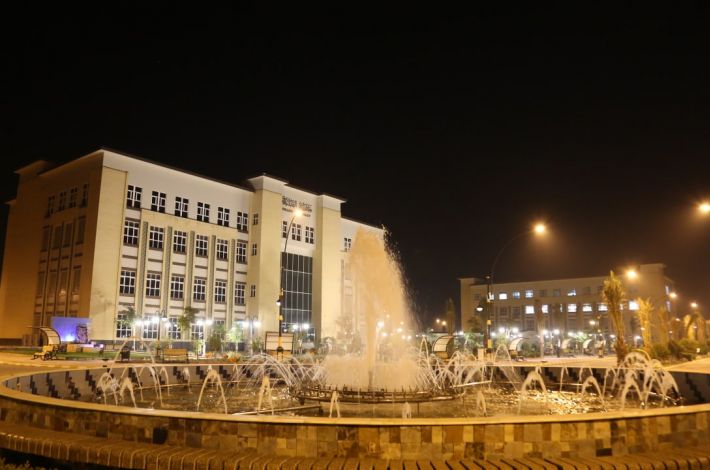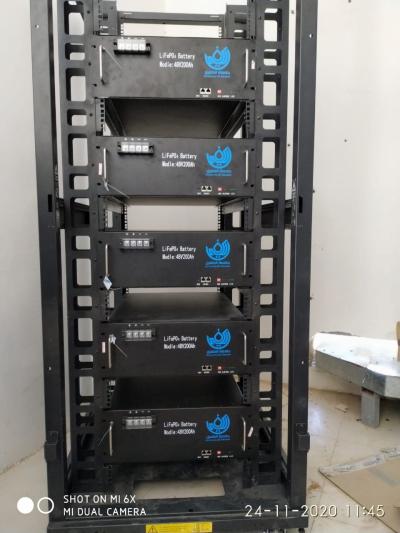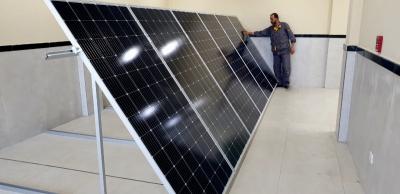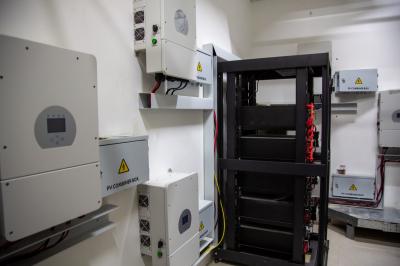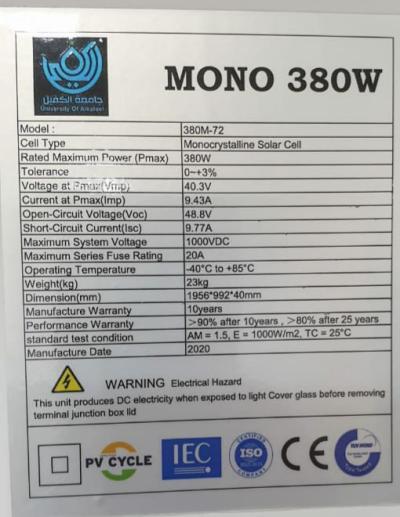The project implementation supervisor and division official, Engineer Firas Abbas Hamzah, spoke to the Al-Kafeel network about this project, stating: “The al-Abbas's (p) holy shrine, including its academic institutions, seeks to introduce and keep pace with development and use the latest technologies. It has made great strides in this field and is still continuing with this work, heading towards investing in solar energy and using it in feeding electronic systems, in all new university buildings with green or clean energy sources. We were assigned to implement this project after studying and designing it, and knowing the university’s needs for all other technical matters, so we formed a team from the Division to implement this project, which it is hoped will achieve the results we aspire to, and that it will generalize its experience to the rest of the institutions and facilities of the Holy Shrine.
He added: “The system consists of (130) solar cells with a capacity of (380) watts per cell and a total capacity of (50) kilowatt hours with lithium batteries with a capacity of (96) kilowatt hours. It feeds all electronic systems and the main information center in the university fully with electricity in the event that the national current is cut off, so that the operation of generators is replaced to feed the university at night, during official and weekly holidays and long holidays (spring and summer), in addition to its assistance to the main feeder of electrical energy at the university by following a special electronic system that ensures the work of the two exporters at the same time using a reverse mechanism without an interruption or defect between them by using the hybrid system, which will reduce electrical energy consumption, especially during the peak period during summer and increase its stability."
He explained: "The system and its panels are of high quality and efficiency and characterized by the angles of solar cells that can change their inclination toward the sun throughout the months of the year, in order to obtain the maximum possible energy from the sun."
Engineer Firas explained: “We have developed an integrated work plan to implement this project, which will be in stages, and will achieve the following:
- Not using diesel generators.
- Reducing the university’s cost of consuming electrical energy and reducing its bills, up to one million dinars per month that the university used to pay to the Electricity Department.
- Providing the sums allocated for operating and maintaining generators and reducing the noise that accompanies their operation.
- Providing a stable electric current continuously without interruption, day and night.
- Contribute to spreading the culture of using alternative energy
- It will provide additional experience for our staff in implementing such huge projects in this field. "
